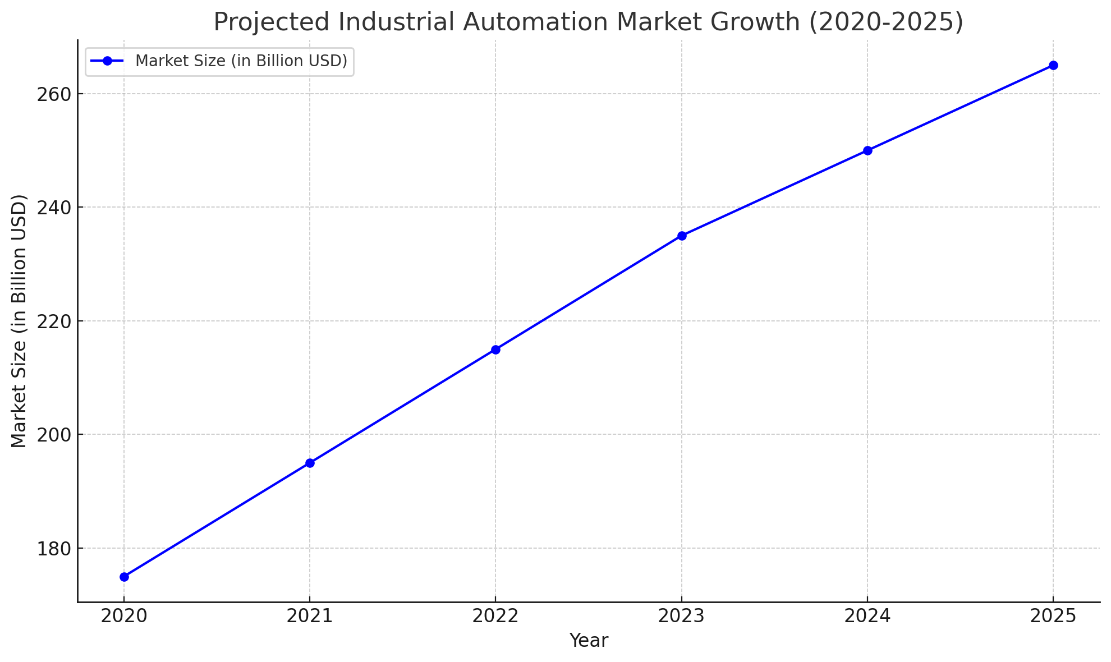We live in a world where tedious tasks are a thing of the past, thanks to the dynamic trio of AI, ML, and IoT. They’re the superheroes of the industry, jumping in to boost productivity and slash those pesky errors. Companies are now on autopilot for the complex stuff, saving a bundle and bumping up the quality of their work. It’s like having a crystal ball, with AI and ML joining forces with DevOps and Cloud Computing to peek into the future of data. They’re mining it safely, analyzing it on the fly, keeping machines in tip-top shape, and helping the big shots make some pretty sharp decisions.
So, what’s the big deal? Well, process automation is like the secret sauce that’s spicing up operations and giving businesses the upper hand in the corporate race. It’s no tall tale; automation and AI are shaking things up faster than a barista whips up your morning coffee, sparking all sorts of chatter about where it’s all heading. Are we looking at a job apocalypse or a chance to dream up jobs we haven’t even thought of yet?
Maximize your IT investment and stay ahead with expert AI Development Services
In this blog, we explore this question using a mix of statistics, studies, and expert opinions from reputable sources.
The Scope of Automation: A Global View
Process automation is on the rise across industries, affecting both low- and high-skilled jobs. According to PwC’s 2018 report on automation, up to 30% of jobs could be automated by the mid-2030s, with varying impacts across sectors. However, it’s essential to understand that automation isn’t necessarily about job destruction but job transformation.
- 30% of jobs globally are at risk of automation by the 2030s (Source: PwC, “International Impact of Automation”).
- In the United States, up to 38% of jobs could be automated, while in Germany, around 35% may be at risk.
Industry Disruptions: Positive and Negative
Process automation is a double-edged sword in the context of industry disruptions. On one hand, it streamlines operations, reduces errors, and increases efficiency, which can lead to the creation of new opportunities. Companies can reallocate resources to innovation and development, potentially leading to the emergence of new sectors and job roles.
On the other hand, process automation can lead to job displacement, especially for roles that involve repetitive tasks. This can have a negative impact on employment in the short term and may require workers to reskill or upskill to remain relevant in the job market. However, history has shown that technological advancements can eventually lead to economic growth and job creation, suggesting that automation may be more of a catalyst for change than a terminator of jobs.
Ultimately, the key lies in balancing the implementation of process automation with strategic planning for workforce development and education to mitigate the negative impacts while maximizing the positive effects.
Job Creation vs. Job Loss
While automation might replace some jobs, it also creates new ones and enhances existing roles. The World Economic Forum predicts that by 2025, automation will generate 97 million new jobs in fields like AI development, robotics, and data science.
Primarily, process automation complements human roles rather than replacing them entirely. Robots and AI excel at handling repetitive and routine tasks, freeing employees to focus on strategic thinking, creativity, and complex problem-solving. This shift creates opportunities for employees to upskill and transition into higher-value roles.
The rise of automation necessitates the creation of new roles to manage and implement these technologies effectively. AI developers are needed to design and build intelligent systems, robot coordinators ensure the seamless operation of automated processes, and digital project managers oversee the implementation of technology-driven initiatives.
Moreover, process automation is likely to fuel innovation and drive the growth of new industries. As AI and robotics become more sophisticated, they will create opportunities for businesses to develop new products and services. This transformation will require a skilled workforce capable of adapting to a rapidly changing technological landscape.
Overall, while process automation may displace some jobs, it also paves the way for new and exciting career paths. Individuals can position themselves for success in the age of automation by embracing lifelong learning and focusing on acquiring in-demand skills.
Two major trends:
- Automation augments human roles: Robots and AI handle repetitive tasks, allowing employees to focus on creative, complex decision-making roles.
- New roles in AI and automation management: AI developers, robot coordinators, and digital project managers are emerging roles.
Forbes adds that while AI may disrupt jobs, it won’t lead to job destruction (Source: Forbes, “AI Creates Job Disruption, Not Job Destruction“). Instead, there’s an evolution, where displaced workers are reskilled and absorbed into new roles.
The Numbers Behind Automation
Process automation is projected to expand rapidly in the coming years. The global industrial automation market is expected to reach $265 billion by 2025, growing from $175 billion in 2020 (Source: Statista’s Industrial Automation Market Size Worldwide). The growing market suggests more investment in automation technologies across industries, leading to the creation of new ecosystems of employment.
Below is a chart illustrating the projected growth of the automation market:

Re-Skilling and Adaptation: Key to Future Employment
One of the most important responses to automation is re-skilling. Companies and governments must invest in training programs to help workers transition into new roles as more jobs become automated. Nearly 40% of workers will need re-skilling within a decade due to automation, says PwC.
Key Skills for the Future:
- Data Science and Analytics: As more companies leverage AI, the demand for data scientists continues to rise.
- AI and Machine Learning Development: Developing, deploying, and maintaining AI systems is a booming industry.
- Technical Support Roles: With automation, there’s an increased need for professionals who can manage and maintain these technologies.
Balancing Automation and Employment Opportunities
Process automation is often viewed through a lens of apprehension, with fears that it may lead to job losses. Though automation may displace some roles, it also opens new opportunities requiring different skills.
Automation bias can significantly influence the implementation of automation technologies, emphasizing the need for a balanced approach that includes the development of human capital. Governments and organizations can play a critical role by investing in education and training programs that equip workers with the necessary skills to thrive in an automated environment and overcome potential biases towards automated systems.
The workforce can transition into roles that are complementary to automated systems such as those requiring complex problem-solving, creativity, and emotional intelligence by fostering a culture of continuous learning and adaptability. Thus, rather than eliminating jobs, process automation can be harnessed to enhance productivity and generate new avenues for employment, provided there is a concerted effort to manage the transition thoughtfully and inclusively.
Let’s Transform and Automate Your Business Processes with Proven Automation Services
Does Automation Kill Jobs? Not Exactly.
All in all, the relationship between process automation and employment is not a zero-sum game. While automation may displace certain job roles, it simultaneously creates new opportunities in emerging sectors and industries.
Adaptability and lifelong learning are crucial, allowing the workforce to transition into roles enhanced by technology, not replaced by it. As history has shown, innovation often leads to economic expansion and job creation, albeit in new forms. Therefore, rather than killing jobs outright, process automation reshapes the employment landscape, demanding a re-evaluation of skills and job training methods to prepare for the future of work.
In today’s fast-paced world, automating business processes is not just an option, but a necessity for staying competitive. Digitalization can streamline operations, reduce errors, and free up valuable human resources for more strategic tasks. Businesses can enhance efficiency, improve customer experiences, and adapt swiftly to market changes by embracing technology.
Now is the time to leverage digital tools and transform your business for the future.
Why Choose WeblineIndia for Automation Solutions?
At WeblineIndia, we master technologies and solutions that make process automation seamless and productive for any business. Whether you’re looking to streamline operations, reduce manual labor, or enhance decision-making with AI software development tools, we provide tailored process automation services for various industry verticals.
Key benefits of partnering with WeblineIndia for automation:
- End-to-end process automation solutions, from consultation to implementation.
- Expertise in AI, machine learning, and workflow automation.
- Industry-specific process automation tailored to your business needs.
Let us help you embrace process automation without the fear of job loss. Our expert team is ready to assist your business in navigating the digital transformation smoothly.
Contact us today to learn more about how we can revolutionize your business through process automation.
Social Hashtags
#ProcessAutomation #RPA #Automation #AIandJobs #AutomationRevolution #AIInTheWorkplace #JobsOfTheFuture #WorkplaceInnovation #AutomationOpportunities #TechnologyAndJobs #InnovationVsJobLoss
Streamline your operations, reduce costs, and enhance efficiency with our Business Process Automation services.
Testimonials: Hear It Straight From Our Global Clients
Our development processes delivers dynamic solutions to tackle business challenges, optimize costs, and drive digital transformation. Expert-backed solutions enhance client retention and online presence, with proven success stories highlighting real-world problem-solving through innovative applications. Our esteemed Worldwide clients just experienced it.
Awards and Recognitions
While delighted clients are our greatest motivation, industry recognition holds significant value. WeblineIndia has consistently led in technology, with awards and accolades reaffirming our excellence.

OA500 Global Outsourcing Firms 2025, by Outsource Accelerator

Top Software Development Company, by GoodFirms

BEST FINTECH PRODUCT SOLUTION COMPANY - 2022, by GESIA

Awarded as - TOP APP DEVELOPMENT COMPANY IN INDIA of the YEAR 2020, by SoftwareSuggest